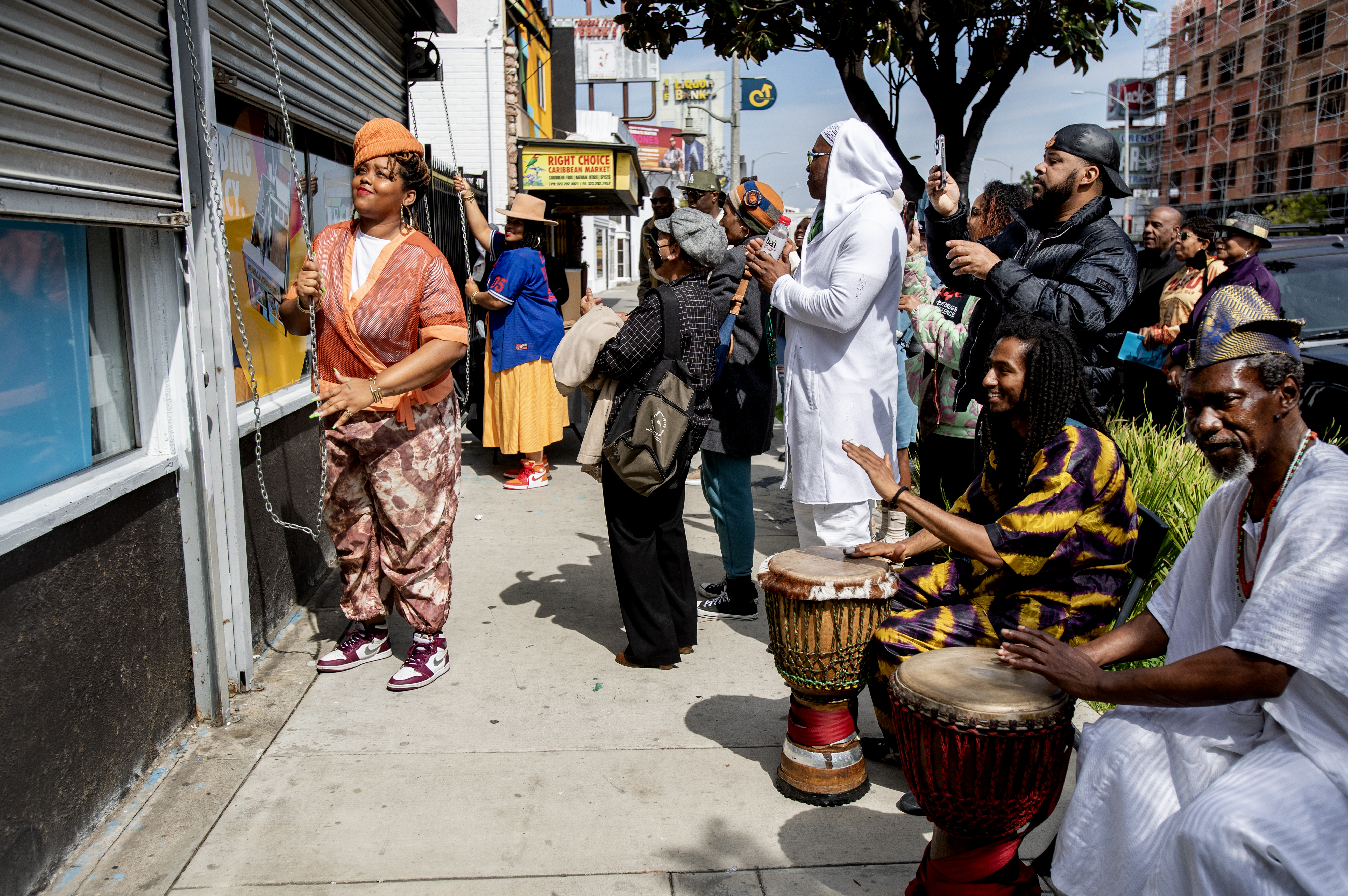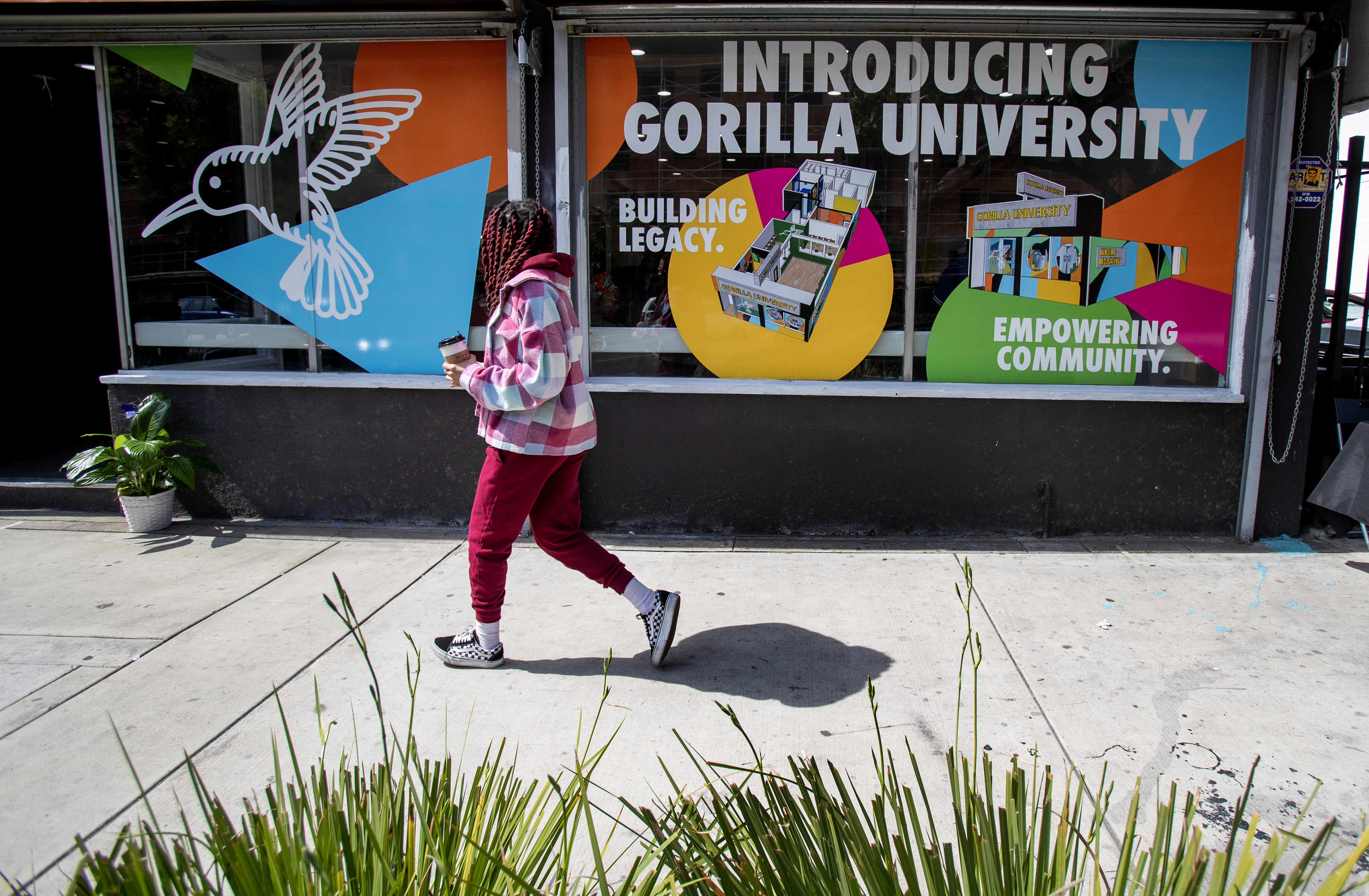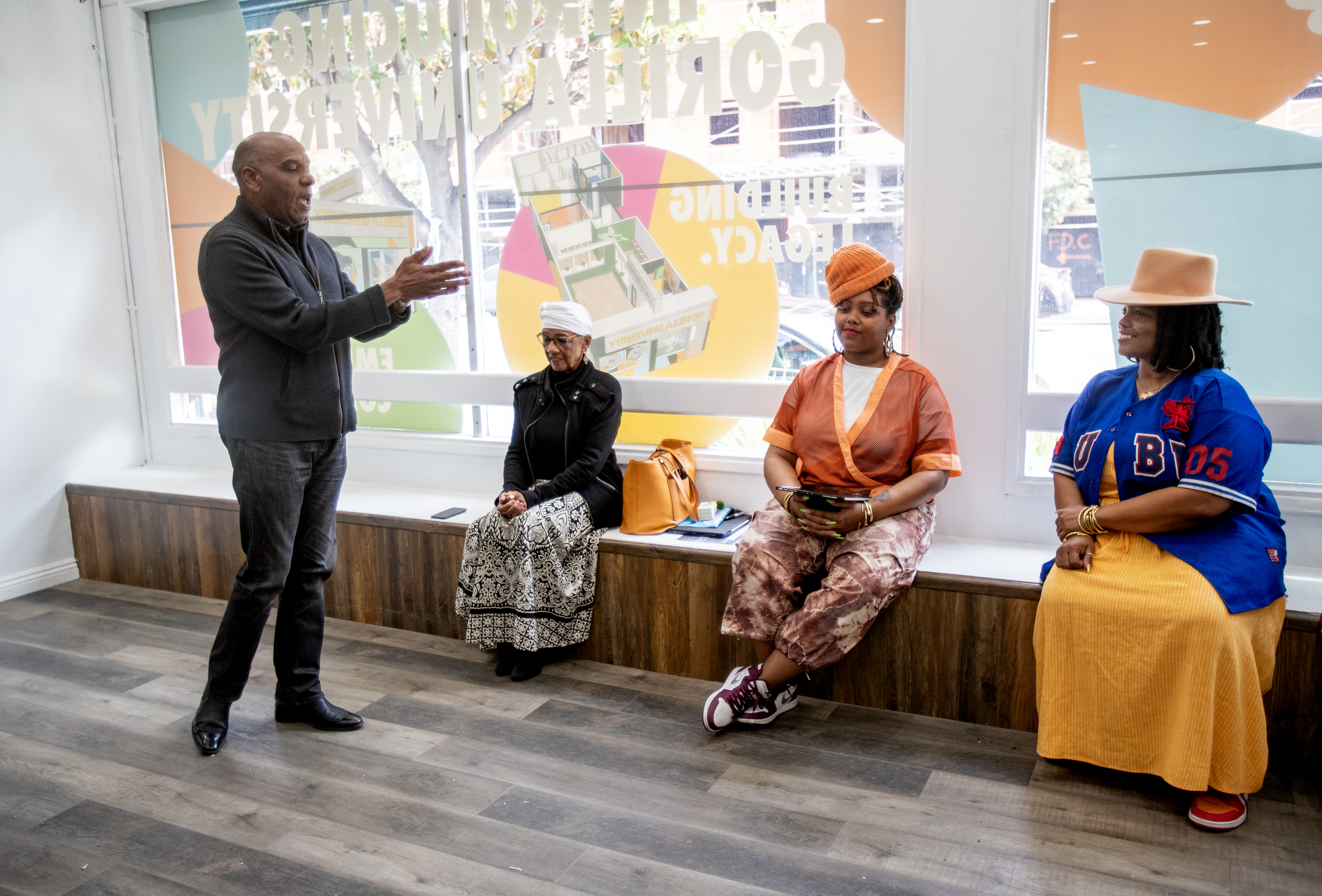California’s cannabis industry is broken. But here’s how we can fix some of it
California Politics, Cannabis
Eric D SmithApril 10, 2023
Broken promises. Continued funding delays. Nonsensical regulations.
Ask Kika Keith, owner of Gorilla Rx Wellness Co. in Leimert Park, to the many ways the California cannabis industry is broken and you’re sure to get an ear, as I did one recent morning, at the failures of city bureaucrats and state legislators alike.
“The lack of compassion for people’s lives and livelihoods. That their lack of attention to detail, that their deliberate inaction actually causes more trauma,” she said. “That’s been the most discouraging thing.”
I nodded. This was far from our first conversation about the dire state of what California calls “social justice,” a collection of city-run programs designed to help people of color who were criminalized during the war on drugs so they could be among the first in line to benefit as entrepreneurs from the new legal market. Think small
–
business loans and grants, training and accelerated access to licenses.
Well, it didn’t go that way. And as the first black woman to open a cannabis store in Los Angeles and have to sue the city to do so as founder of the Social Equity Owners and Workers Assn. Keith has lived the many reasons why.
But on this particular morning
there was a new level of disgust and urgency in what she told me.
As of this month, the State Department of Cannabis Control will no longer accept applications for so-called
“
provisional
“
business licenses and will stop issuing them altogether from June 30. Instead, business owners will have to get more permanent “annual” licenses to open their businesses.
Sounds mysterious, right? As a minor bureaucratic matter.
wrong
This phasing out of provisional licenses could very well decimate social equity programs in California, undermining what many expected: a wave of enrollments and new businesses in LA, Oakland and Sacramento as cities finally get their act together on cannabis .
The only way out of this is supposedly through a bill from Senator Steven Bradford, which faces a critical committee hearing on Monday. But more on that later.

It is about the heavy reliance of social share applicants on provisional licenses. By securing one, they can open the doors to their business and start making money, all while going through a cannabis licensing process that even bureaucrats say is unnecessarily long and expensive. Here’s how Keith did with Gorilla Rx Wellness.
Annual licenses don’t allow that kind of flexibility, and the upfront costs are higher.
For entrepreneurs who enter the cannabis industry with tons of money and armies of lawyers and accountants, this isn’t much of a problem. They can afford to wait. But social equity applicants cannot, as they tend to lack access to capital and therefore have less margin for error, having endured decades of systemic racism.
There are many stories of black people who lost their savings by paying years of rent on vacant commercial properties while trying to get a permit. The one that get me is about a daughter who, together with her mother, sold her grandmother’s house to buy a shop and then seized
before they could open their shop.
“This was an opportunity to set the war on drugs right. We believed all that hype because politicians said so, and who ever came in our community and said that? That there are laws and regulations to actually control our economic power? accomplish?” Keith asked. “We really believed it and they led us on.”
Allowing this situation to continue, where social security applicants are denied access to provisional licenses, would mean giving up one of the few potentially good things to come from California’s cannabis legalization. As my Times colleagues have written, it’s an industry increasingly defined by a whole host of bad things, from corruption and violence to the exploitation of guest workers.
It would also mean robbing black and brown communities of yet another source of generational wealth, in this case by starting successful cannabis businesses.
The latter is something Keith has been working on for months, and recently opened a staff training facility and business incubator called Gorilla University. The lessons cover everything from how to comply with California’s strict seed-to-sale regulations, how to handle cash like a budtender, to how to navigate the bureaucracy of social equity programs.
“This is my labor of love,” Keith told me. “This is my true love letter to my community.”
She doesn’t even want to think about how phasing out provisional permits could undermine all of this.
::

“
Ash!
”
The two dozen people gathered on the sidewalk in Leimert Park in prayer and shouted the word in unison, expressing a final thanks to the ancestors. Then Keith and her daughter, Kika Howze, each grabbed a chain and rolled down the security doors to reveal Gorilla University’s rainbow-adorned windows.
“I say it all the time,” Keith began, as everyone who had come to the grand opening sat down, “but what we’re doing next door and here is really the house people built.”
Gorilla University is mostly white walls and plastic furniture for now. But in a few months, it will look more like Gorilla Rx Wellness, with its colorful shelves and flashy display cases. In short, it will be a fully operational pilot shop where people can learn how to work with customers and manage the basics of a business in a back office.
Keith and her investors purchased the commercial retail space after the previous tenant, LA Cannabis Co., vacated Leimert Park. They now own a sizable portion of an increasingly important block of rapidly gentrifying South LA, with a stop on Metro’s new K Line and a massive new apartment building across Crenshaw Boulevard.
“Our goal is to cut corners,” Keith told me, “to gentrify with our people.”
Gorilla Rx Wellness already has about 40 employees, most of whom, like them, have grown up in the surrounding community. She’s also likely to take on more, especially as she moves to open a second store in Long Beach.

All of this is why social justice programs are so important and why the state needs to start issuing provisional cannabis business licenses to entrepreneurs again. That’s what Bradford said at the grand opening at Gorilla University.
His Senate Bill 51 would allow state regulators to grant such licenses only to social stock applicants who want to open stores. It would also allow for the renewal of a provisional license for up to five years.
“I hope we can help
a path for some of those people who might still be interested,” Bradford said
,
(D Gardena). But hey
acknowledgedadmitted
that “it’s too late for a lot of people. Some people have given up, with all the hurdles and roadblocks they had to go through.”
The bill passed its first Senate Judiciary hearing last month, with dozens of business owners and bureaucrats and representatives of cannabis trade groups testing in support. Another important committee hearing is scheduled
Monday
.
Keith wants to watch. And pray.
Ashe.
“That’s why we fight,” she told me. “I put my foot on their neck about following the law they made and the words they spoke about
good writing
the injustice for the war on drugs.”
Fernando Dowling is an author and political journalist who writes for 24 News Globe. He has a deep understanding of the political landscape and a passion for analyzing the latest political trends and news.



